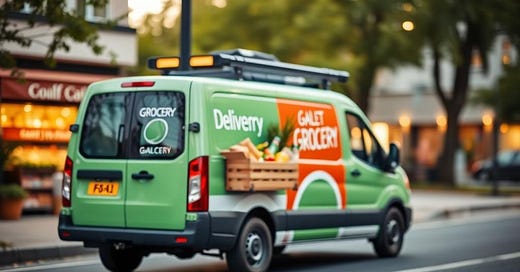#17 5 Questions to Assess Market Timing
Timing can be a blessing or a curse. Too early, and you’re WebVan. Get the timing right, and you’re Instacart.
Interestingly, historically “terrible times” from a macroeconomic perspective have produced some of the biggest venture outcomes. This is structural — during bad financial times, talent is more available and cheaper, customers seek out cost savings (which can drive behavior change), and big companies tend to get slow and conservative. Here are a few additional startups that succeeded, in part, because of good timing:
Airbnb - Launched during the 2008 financial crisis when people were desperate for extra income (renting out spare rooms) and travelers were looking for cheaper accommodations.
Uber - Also took off post-2008 recession when many people needed flexible ways to earn money (becoming drivers), and smartphones were just becoming ubiquitous enough for an app-based taxi alternative.
Zoom - Already growing steadily but exploded during COVID-19 when the world suddenly needed easy, reliable video conferencing for work, school, and social interaction.
Shopify - Benefited hugely from the broader shift toward e-commerce, especially as small businesses moved online during the 2010s — and later exploded again during the COVID-19 lockdowns.
On the flip side, bad timing can kill startups. Startups that failed (at least partly) because of bad timing include:
Webvan - Premature for its time (late 1990s); the technology, consumer habits, and logistics infrastructure weren't mature enough for large-scale online grocery delivery.
Napster - Blew up too early for the industry (music licensing was not ready to evolve), and legal issues crushed it. A later entrant like Spotify thrived with more favorable legal and market conditions.
Friendster - Early to social networking, but infrastructure and product design weren’t ready for mass use. Later platforms like Facebook entered when technology and user behavior had matured.
Pets.com - An online pet supply retailer that launched during the dot-com bubble. Consumers weren’t yet comfortable shopping online for everyday needs, and shipping costs were still too high relative to margins.
Better Place - A startup aiming to create electric car battery swap stations (2007–2013). The idea was ahead of the EV market's maturity — consumer adoption of EVs and supporting infrastructure simply weren’t there yet.
Big theme across both lists:
Good timing often means not just being "early" with a good idea, but showing up when the world is ready to change — and when technology, costs, and user habits are aligned. For startups, when we’re assessing market timing here are 5 questions we ask:
1. Is the necessary technology cheap, reliable, and widely available now?
Bad timing: Too early if tech is too expensive, clunky, or rare.
Good timing: Tech is mature enough for mass adoption.
Example: Webvan was too early; Instacart had smartphones, GPS, and logistics tech ready.
2. Are customers already behaving in a way that shows they want this, or are close to it?
Bad timing: If you'd have to radically change behavior first.
Good timing: If you’re catching a shift already underway.
Example: Airbnb started with people already comfortable with online rentals from Craigslist.
3. Are there big forces (crises, cultural shifts, new laws) pushing people toward this solution?
Bad timing: Nothing is forcing urgency.
Good timing: A trend or event is creating strong pull.
Example: COVID accelerated Zoom and Instacart adoption.
4. Are the platforms, tools, and systems that support this idea already in place?
Bad timing: If you'd have to build everything yourself from scratch.
Good timing: If you can plug into existing systems.
(Example: Shopify succeeded because payment processors, shipping, and online ads were ready.)
5. Is there a gap now because existing solutions are outdated, expensive, or annoying?
Bad timing: If the market is already dominated by good enough solutions.
Good timing: If users are unhappy and looking for alternatives.
(Example: Almost every successful major startup answers this question affirmatively.)
You could argue that we are in (or heading towards) “terrible” macroeconomic times, which may be bad news for your stock portfolio, but is a great time to be a seed stage startup or venture capital investor. If you’re building a digital marketplace startup in the spaces where we have an active thesis, we’d love to chat, shoot us a note at contact@snak.vc.
Weekly Deals
What We’re Reading
How could tariffs affect the start-up world? HubSpot provides its take here.
Take Rate - Colin Gardiner’s latest newsletter with thoughts on incumbent marketplaces that have stayed dominant, and info. on a 6 week program from District specifically for consumer marketplace founders.
Meet with us
We’re on the move, and love to meet with founders and investors in person. Reach out to contact@snak.vc:
April 29 - May 1 | Palm Springs - investor meetings
May 22-23 | NYC - we will be at VSC’s Dirty Jobs Summit and would love to meet with founders and investors before and after
June 6 | Judging University of Chicago Booth’s Global New Venture Challenge
June 25 - 27 | Indiana - Great Lakes Venture Summit





